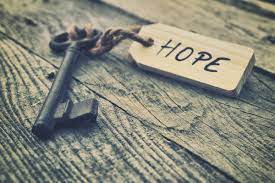Should you have low-expectations?
“By hope we are made well. However, hope that is seen is not hope, for how can one hope for what one sees? However, if we hope for what we do not see, we look forward to it with patience” (Rom 8:24–25) - Augustine, City of God, Book 19
The concept of hope has long been a cornerstone of human resilience, a mental refuge in the face of adversity. The idea that "as we are made well by hope, so we are made happy by hope" resonates deeply with the human condition. It's a sentiment that echoes throughout religious and philosophical texts, including the intricate discussions on the nature of peace, justice, and the heavenly city in the writings of Augustine. Hope is often what sustains us through trials, fueling our patience as we await the well-being and happiness we yearn for. But what if this hope is misplaced? What if the justice we anticipate in the heavens turns out to be an illusion?
The notion that hope comforts but also kills is a provocative one. It challenges the bedrock of many belief systems that posit an ultimate cosmic justice, a final reckoning where the scales are balanced. This hope for divine justice can indeed pacify hearts, offering solace against the glaring injustices we witness or experience in our earthly lives. It can make the unbearable bearable, providing a lens through which suffering and inequality can be viewed as temporary, awaiting correction in some future state or afterlife.
However, this comfort comes at a cost. If the heavens are not just, if there is no divine plan that ensures ultimate fairness, then the hope that has comforted so many is not just false but cruel. It becomes an injustice in itself, a betrayal that has led people to endure their current suffering in anticipation of a justice that will never come.
Hope then becomes a double-edged sword which, while it has the power to sustain us, has the potential to perpetuate suffering by discouraging action against current injustices. The question then becomes: How do we balance the comfort that hope provides with the imperative to question its basis? This is not just a philosophical query but a call to scrutinize the beliefs that shape our understanding of justice, both earthly and divine. For in the quest for justice, hope can either be our greatest ally or our most devastating foe.
